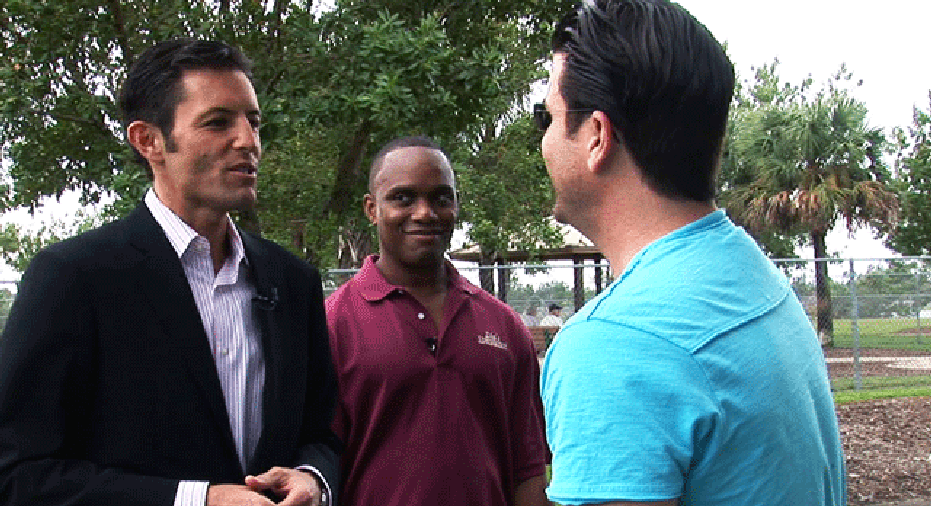Turning Average Joes Into the Next ‘Big Thing’

Facebook—you could have thought of that, right? What about something simpler like the Snuggie? Who hasn’t seen a product or an idea and kicked themselves for not acting on their own inner inventor?
Founder and CEO of Enventys Louis Foreman says the average person often lacks the drive and insight it takes to get their innovations from the idea phase into physical form to pitch.
“Eighty-percent of the working population is risk averse,” Foreman said. “Life gets in the way. We don’t have the time or resources to do it. But rather than just sitting on our great ideas, why not see if there’s value?”
Foreman is the executive producer of “Everyday Edisons,” which has won two Emmys and is in its’ fourth season this year. The show leads those with "great ideas" into the product development phase. Louis Foreman, CEO of Edison Nation, said he started the show in 2005 for those who had inventions in their brain but didn’t know how to follow through on them.
“They either don’t have the resources or don’t understand the process,” Foreman said. “They don’t want to cash in their 401k to create their product. Each season we look at thousands of ideas and take the ten best from their ‘A-ha!’ moment to their product development moment on the show.”
“Everyday Edisons” has developed more than 35 products worth over $175 million, including the ‘As-Seen on T.V.’ offerings, Gyro Bowl, Eggies and EmeryCat. Revenue doubled in 2011 and this year the show will launch up to 15 more products.
Building off the show’s model, in 2008 Foreman launched Edison Nation, an online community that he says essentially does what the show does for inventors who sign up to the Website.
As investors, Foreman’s firm has an annuity on sales for the life of the products they help launch.
"People post online confidentially, and we filter and take ideas back through our company and present them to large consumer manufacturers like Wal-mart, Bed Bath & Beyond, Target, Proctor and Gamble, and Mattel. We find out what they are looking for,” he said.
If the manufacturers take the bait, they will license the product and Edison Nation will split the royalties with inventors fifty-fifty, Foreman said.
The upside, he said, is that the firm takes on the full cost to help the average Joe develop their idea and even creates the prototype to present to the large corporations, which can cost up to $10,000 for budding inventors.
And, if the invention is not successful, the creator has it back, with no charge. Foreman said in the past year Edison Nation has connected 80 successful inventions and their creators with large corporations to develop their products.
Foreman said the Edison Nation format also saves inventors from investing tons of cash in a project that’s going nowhere fast.
“The average inventor doesn’t determine product feasibility before investing capital,” he said, “They assume everyone suffers from their same problems and seek validation from family and friends before figuring out if their idea is a problem or a solution.”
Eventys is also currently working on a pilot program for veterans who want to get into business but lack their ‘great idea.’ The company will connect ideas from Edison Nation and their inventors with a veteran who suits their profile, and invest its own capital to“de-risk” the idea. Enventys will also mentor the veteran throughout the creation process.
Right now, Foreman said the company is working with the Charlotte, N.C., Chamber of Commerce to find three-to-five veterans who want to get into the entrepreneurship game.
“Veterans are less risk averse, and more likely to do it,” he said. “I believe what is truly holding these vets back is that original idea. In short of opening a Quiznos, we thought, ‘why not match these great ideas with veterans who can mobilize them?’”
Foreman said he hopes to roll out the project within the next year.



















